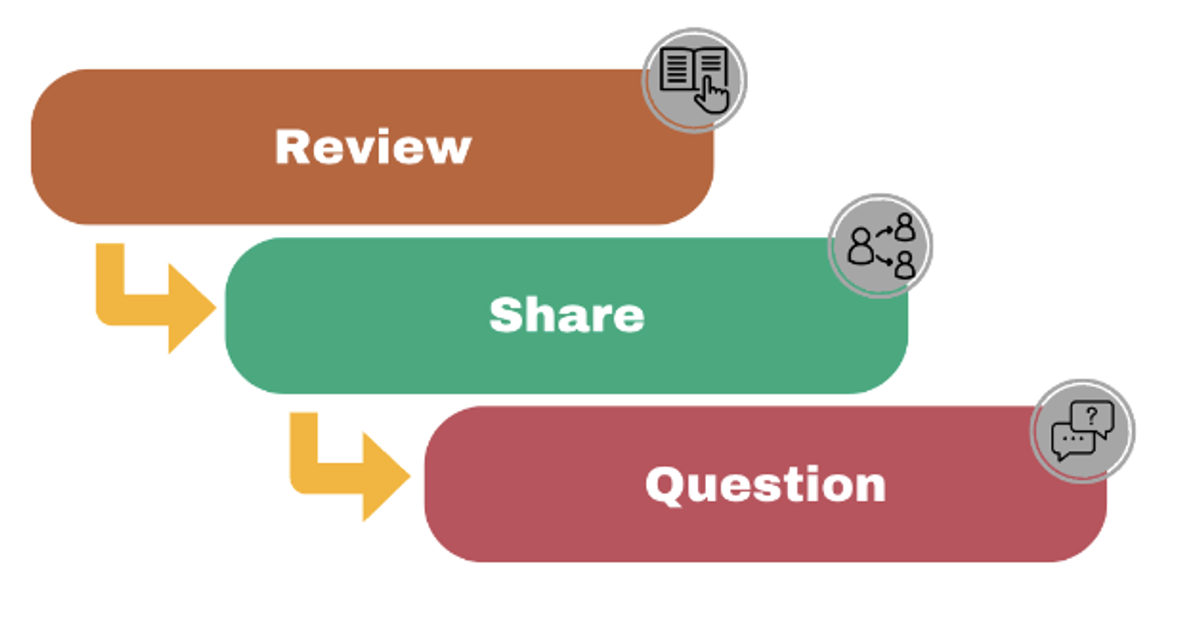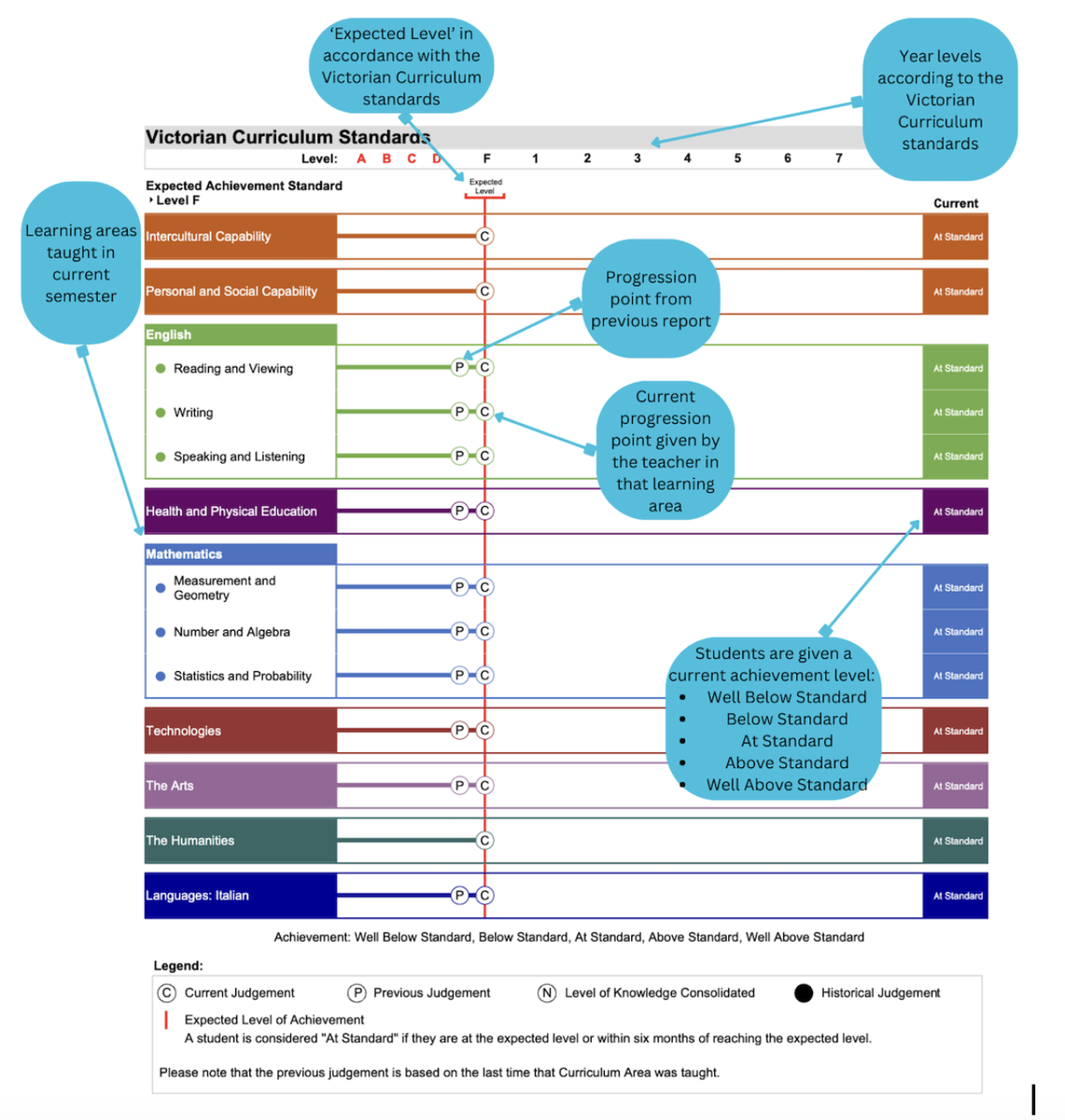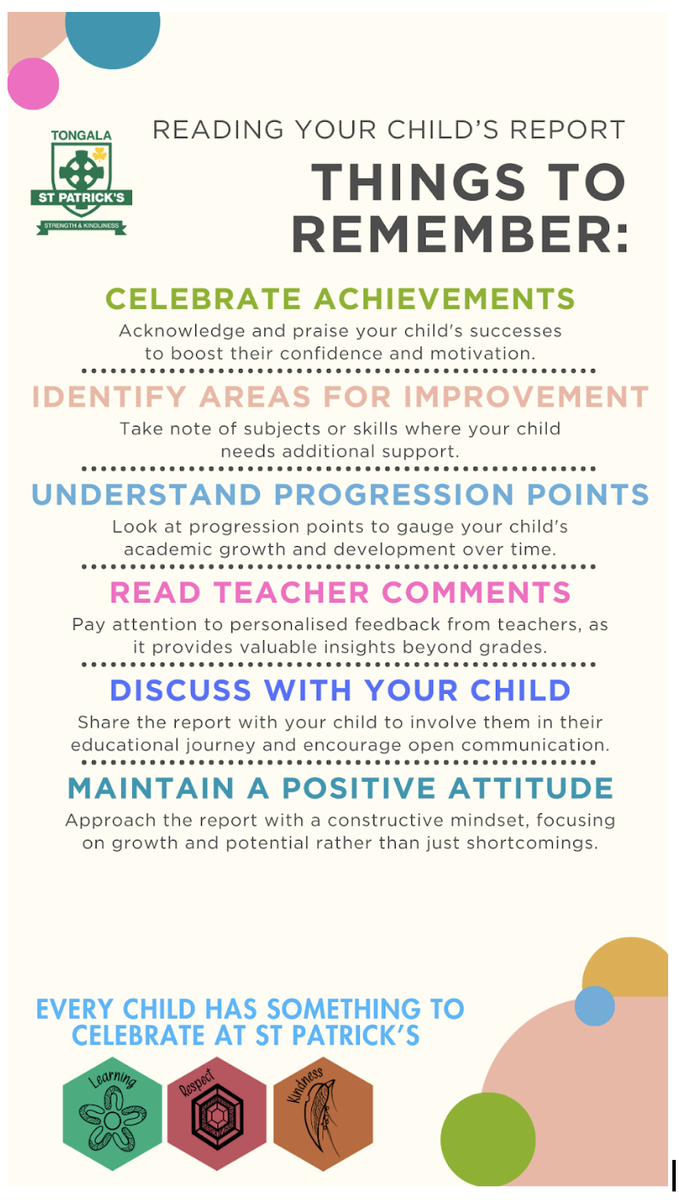Learning & Teaching
Leader: Lauren Bennett

Learning & Teaching
Leader: Lauren Bennett
Our teachers are currently in ‘report writing mode’ which means that soon our families will be in ‘report reading mode’! To help with reading reports and support the big question of ‘what does this all mean?’ here is your report reading guide:
Why is it important to read your child's report?
Reading school reports is vital for families to stay engaged in their child's academic journey. These reports provide insights into a student's progress, strengths, and areas needing improvement. By reviewing them, families can celebrate achievements, address challenges, and collaborate with teachers to support their child's education. Staying informed through school reports helps ensure that students receive the encouragement and resources they need to succeed.
It is important that if you see anything on your child’s report that brings up questions or concerns for you that you share these with your child's classroom teacher so you can have your queries addressed. Doing this in a timely manner after reading the report is crucial to ensure things get discussed straight away and our concerns don’t grow over time.
Why should I share the report with my child?
Sharing school reports with your child and opportunity to have open communication and self-awareness. It allows children to understand their progress, celebrate their achievements, and recognize areas for improvement. Discussing the report together can boost their motivation, help set realistic goals, and encourage a proactive attitude towards learning. Sharing their report and results with them is an excellent way for your child to feel supported about their learning at school.
When we read our child’s reports we should follow this cycle:
Review: Read your child’s report
Share: Share your child’s report with them
Question: Note down your questions or concerns and speak with your child’s classroom teacher.


What do the progression points mean?
Progression points in a school report are key indicators of a student's development in various subjects. Understanding these points helps parents track academic growth over time and see how their child is progressing. All of the progression points for St Patrick’s align with the Victorian Curriculum standards and levels. Here is a look at what the different elements of the progression points mean in your child’s report.


Why is my child’s attendance mentioned in their report?
Attendance is mentioned in your child's report because it plays a crucial role in their academic success. Regular attendance ensures that students do not miss out on important lessons, class discussions, and activities that contribute to their learning and development. At St Patrick’s if a student is sitting below 90% attendance they receive a comment in their Semester Report.


At St Patrick’s every student has a right to feel celebrated, welcomed and valued. All teachers and staff are committed to ensuring your child loves coming to school each day and works hard to ensure each student is being supported in their learning. We appreciate you being invested in your child’s learning by reading their report. With reports coming out in the next few weeks we ask that parents read them, celebrate and share with their child and follow up with classroom teachers if there are any questions.
Asking your child about their learning at school is a great way to show interest in their education and to support their academic growth. By asking about what they are learning and getting them to share it allows for their knowledge to strengthen. If you are looking for some questions to speak to your child about to talk more about school try a couple of these at the dinner table:

